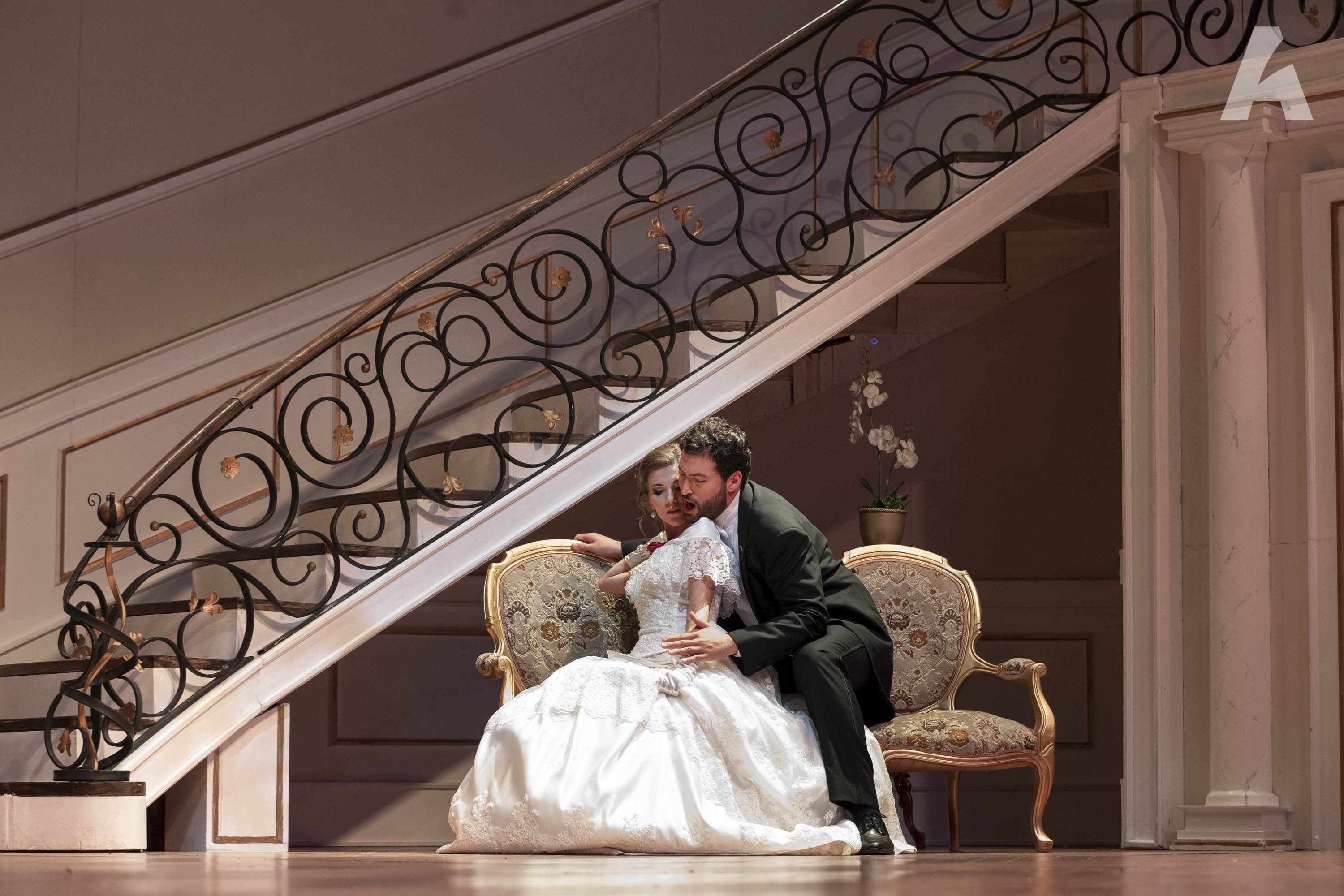- Thursday09 | May19
ÓPERA DE TENERIFE PRESENTS 'LA TRAVIATA' AT MAGMA NEXT WEEKEND

Alejandro Abrante is the stage director of this production
Ópera de Tenerife is putting on Verdi’s The Traviata at Magma Arte & Congresos in Adeje next weekend. The show is taking place at 7:30 pm on Saturday and Sunday with the collaboration of the Government of the Canary Islands through its Local Ministry for Tourism. The production which has been fully made on the Island, is being put on outside Auditorio de Tenerife as the Cabildo’s aim is to bring the genre to new audiences. This production will then go on stage the following weekend, [on the 18th and 19th], at the grounds of former Hotel Taoro, in Puerto de la Cruz at 9:00 pm
This opera is about a woman, Violetta Valéry, and her love for Alfredo Germont, which is frustrated because of the moral standards of 19th century society. As stage director, Alejandro Abrante portrays the atmosphere and the characters Verdi employed to depict the details of a male-centred society. Jorge Cabrera’s stage design, which has been technically conceived to take the opera out of the usual stage, will transport viewers to a 19th century Paris where constructive elements and the new materials brought by the industrial revolution, like forged iron or glass, blend together.
Alessandro Palumbo, as he did last year at the Paraninfo and in Garachico, where this production was premiered, will be the musical director with Orquesta de la Academia Opera de Tenerife [Opera de Tenerife Academy Orchestra]. Singers include Julia Muzychenko (soprano); Nina Solodovnikova (soprano); David Astorga (tenor); Gillen Munguía (tenor); Daniele Terenzi (baritone); Pablo Gálvez (baritone); Borja Molina (baritone); Christina Campsall (mezzo soprano); Francesco Venuti (bass-baritone); María José Torres (soprano); Badel Albelo (tenor); Aleksandr Utkin (bass-baritone); Ángel Silva (baritone); Argel Campos (tenor) and Néstor Suárez Alonso (bass). The event also features Coro de la Ópera de Tenerife, directed by Carmen Cruz.
Costumes are by Tenerife designer Javier Caraballero and have been made by the Auditorio de Tenerife dressmaking team with the occasional collaboration of students of CIFP Las Indias, following a detailed study of the uses and customs of the period, in order to make them as realistic as possible.
Based on Alexandre Dumas’s novel Camille, The Traviata is one of the best-known compositions by Giuseppe Verdi (1813-1901). It begins at a party taking place in a luxurious hall, where courtesan Violetta Valéry meets young Alfredo Germont. The act ends with the popular toast “Libiamo ne’Lieti calici”. This piece praises the hedonistic life in 19th century Paris, that succumbs to the material pleasures of life.
From that moment on, viewers will feel a range of emotions, from joy to frivolity, gender violence to sadness, through a succession of situations that will make them feel all the phases of deepest love. The lovers will suffer the consequences of their social milieu, highly male-centred. The mishaps in their romantic adventure will lead them to an unavoidable dramatic outcome.
Tickets for any of the performances can be bought at Auditorio de Tenerife box office, from 10:00 am to 7:30 pm Monday to Saturday; on auditorio’s website or calling 902 317 327. Tickets for the performance in Adeje, can also be bought at Magma Arte & Congresos box office from 9:00 am to 5:00 pm Monday to Friday; for Puerto de la Cruz, you can also get them at Castillo San Felipe Tuesday to Saturday, from 10:00 am to 1:00 pm and 5:00 pm to 8:00 pm.
In parallel and in collaboration with Puerto de la Cruz Town Council, there is a talk at 7:00 pm on Tuesday, the 14th entitled “La traviata, un volcán de emociones” [The Traviata, a volcano of emotions] at Salón de Plenos in Ayuntamiento de Puerto de la Cruz. The following day, Wednesday, the 15 at 7:00 pm, the last Primavera Violeta talk will be held at Sociedad Cultural Liceo de Taoro, in La Orotava. Its title is “La imagen de lo invisible en el reflejo de las tres mujeres que inspiraron a Verdi ‘La traviata’: Alphonsine Duplessis, Marguerite Gautier y Violetta Valéry” [The image of the invisible reflects on the three women who inspired Verdi’s The Traviata: Alphonsine Duplessis, Marguerite Gautier and Violetta Valéry].


